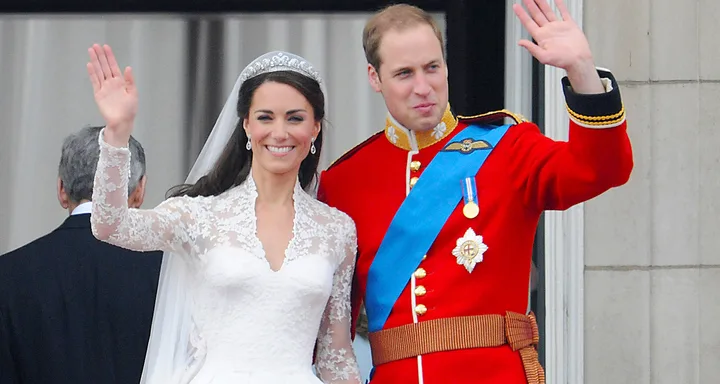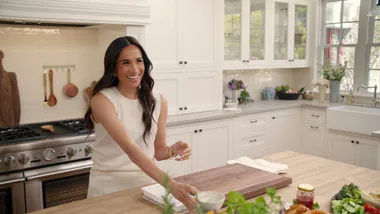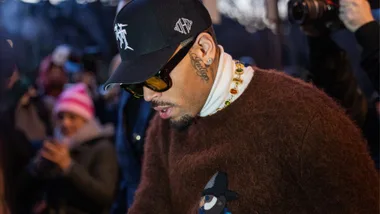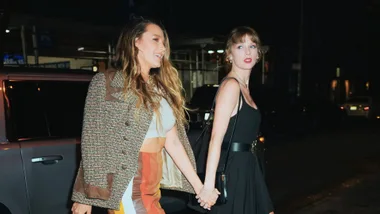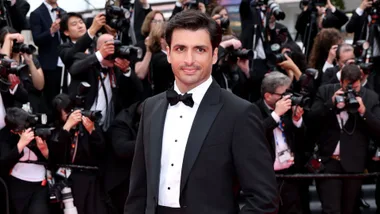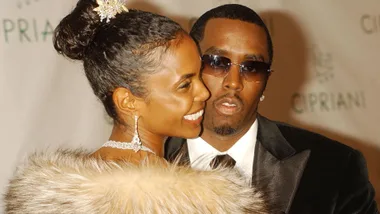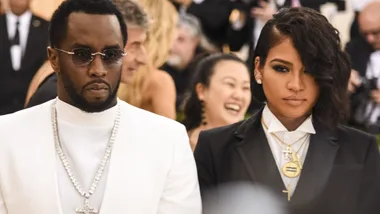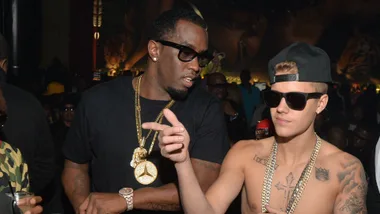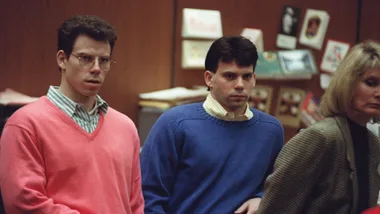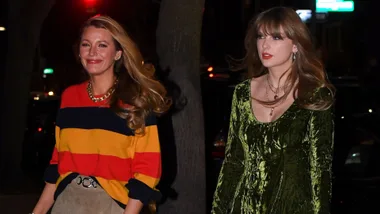Just over nine years ago, Kate Middleton stepped out of her Rolls-Royce at Westminster Abbey, and revealed her show-stopping Alexander McQueen wedding dress. The highly-anticipated design made such an impression that it’s conception is continuously spoken about to this day.
Designed by Sarah Burton for Alexander McQueen, the bridal gown cost a rumoured $619,000 to create. But aside from its face value, a myriad of work went into the piece behind-the-scenes that you may not know about.
Below, we’ve rounded up 12 of the most interesting facts about the Duchess of Cambridge’s wedding gown, that you may or may not know.
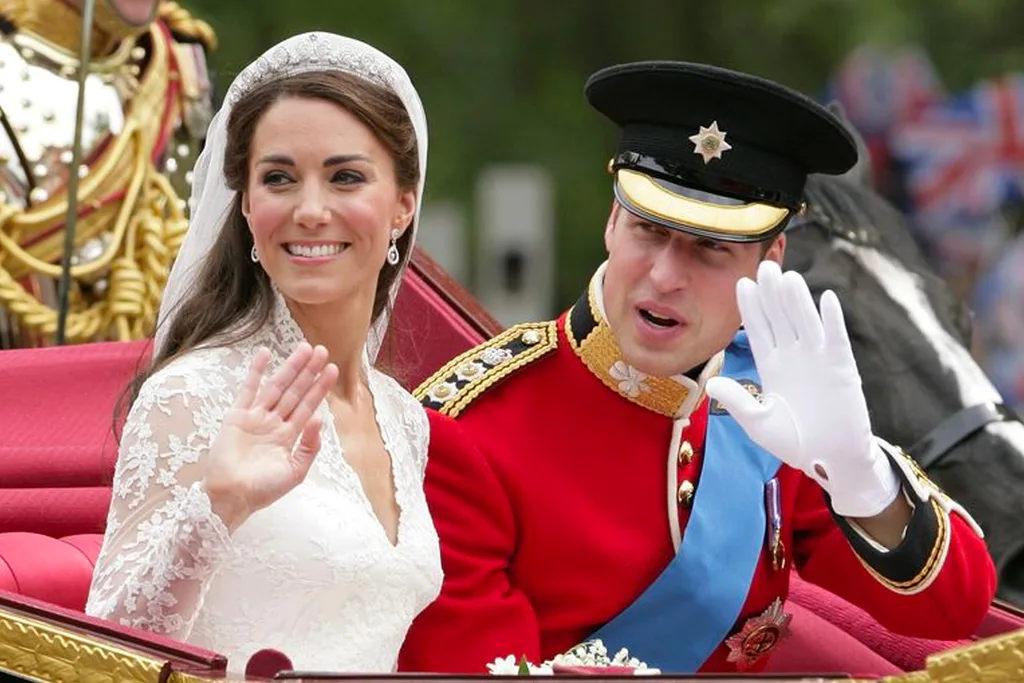
According to Good Housekeeping, Sarah Burton’s team sewed a blue ribbon into the interior of Middleton’s dress to serve as her ‘something blue’ for her wedding day.
Each Flower In Her Bouquet Had Significance, Including A Flower Called ‘Sweet William’
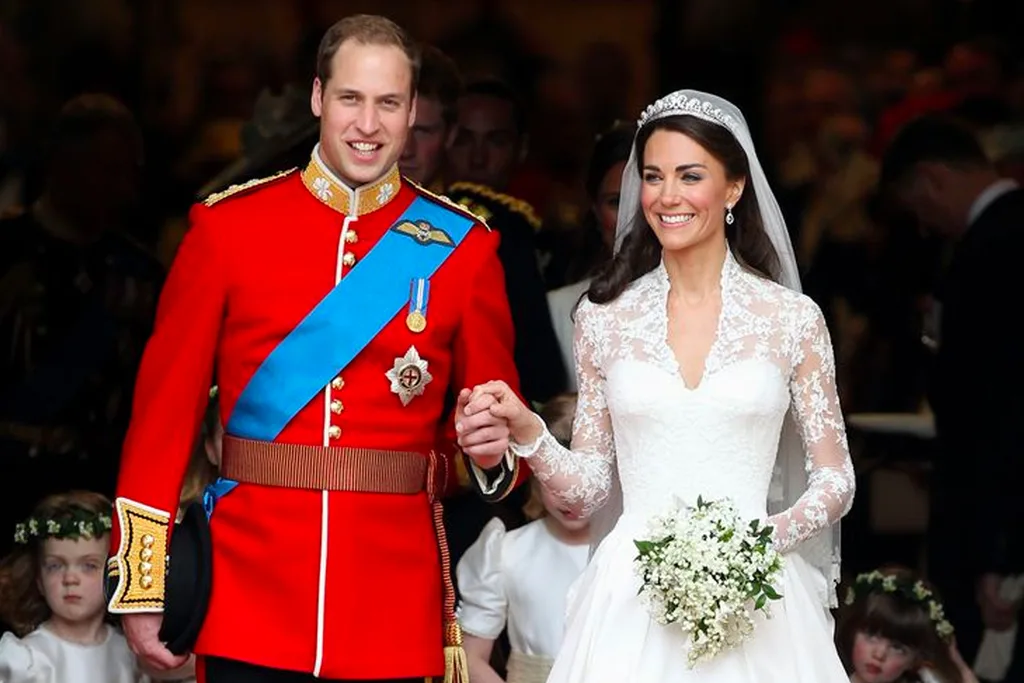
Kate Middleton’s bouquet featured myrtle, lily-of-the-valley, hyacinth, and sweet William, a nod to her groom-to-be. According to the Palace, her sprig of myrtle came from the same plant Queen Elizabeth’s wedding bouquet featured in 1947. Dating back to Queen Victoria’s era, the tradition of a royal bride carrying myrtle in a wedding bouquet continues to run in the family. Queen Victoria’s eldest daughter Princess Victoria, carried myrtle in her bouquet back in 1858, and the tradition has continued since.
Kate Wore Her Hair Half-Up Half-Down As She And The Palace Disagreed On How To Style It
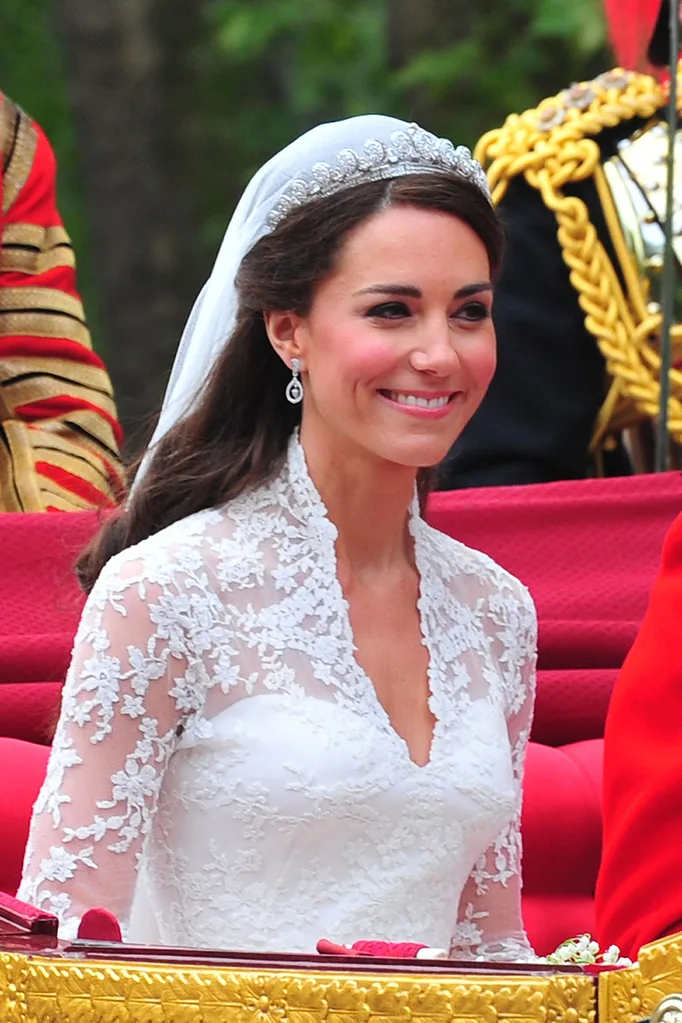
Apparently, Middleton’s half-up half-down hairstyle was meant to have been a full up-do for tradition’s sake, according to Harper’s BAZAAR U.K.. In the documentary, William & Kate: The Journey, royal reporter Ashley Pearson claims that the bride was given official hair advice as such, but went against it.
“Royal sources tell me that the royals indicated very strongly to Kate that they would prefer her to wear her hair up for this very special occasion,” Pearson revealed.
“However, Kate had her heart set on wearing her hair down with long flowing curls, which is her favourite way to wear it and actually William’s favourite as well. They ended up compromising on her look.”
Kate Middleton Did Her Own Makeup For Her Wedding Day
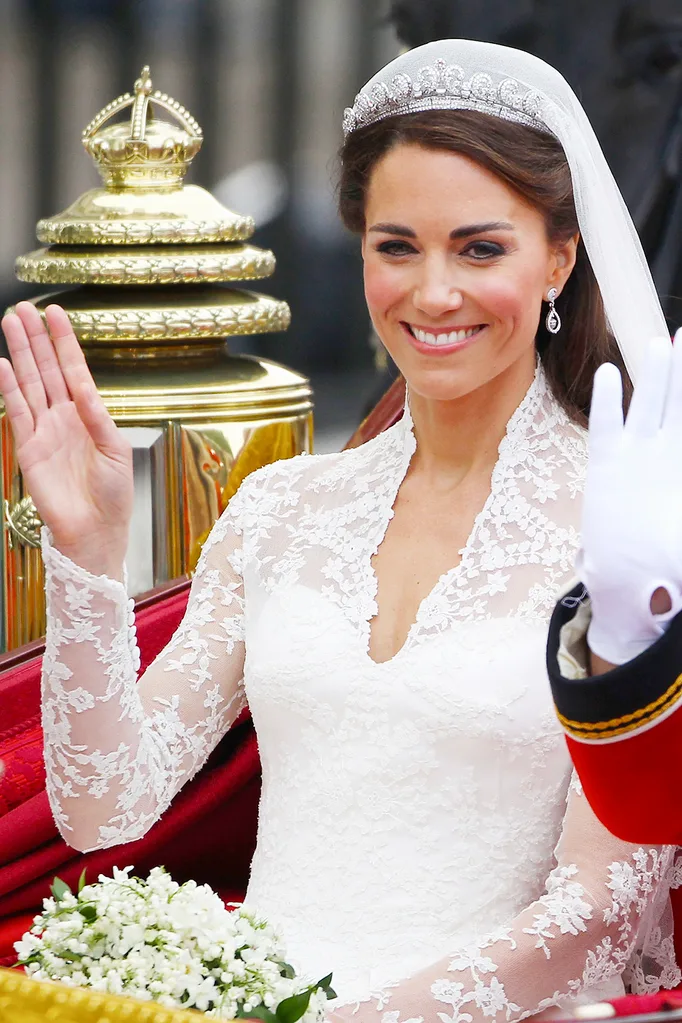
When Kate Middleton married Prince William in 2011, she famously did her own make-up for the event, with the help of make-up artist Arabella Preston. Apparently, Middleton told her aides that she “knows her own face” and doesn’t think a professional could do a better job than her, according to the Daily Mail.
Middleton Chose Alexander McQueen Because It’s Known For The Victorian-Style Corsetry
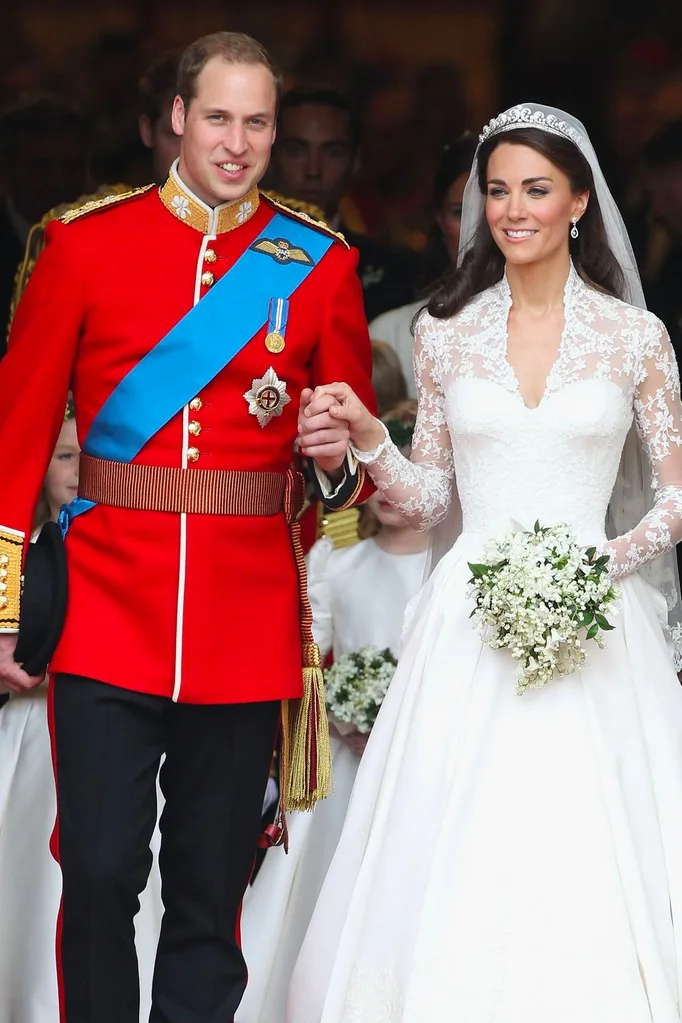
Victorian-inspired corsetry is a signature of Alexander McQueen, and Kate Middleton’s gown was no exception. To accent the bodice’s narrow waist, designer Sarah Burton added some extra padding below the midsection.
All Of The Fabric Used On Her Gown Was From The United Kingdom
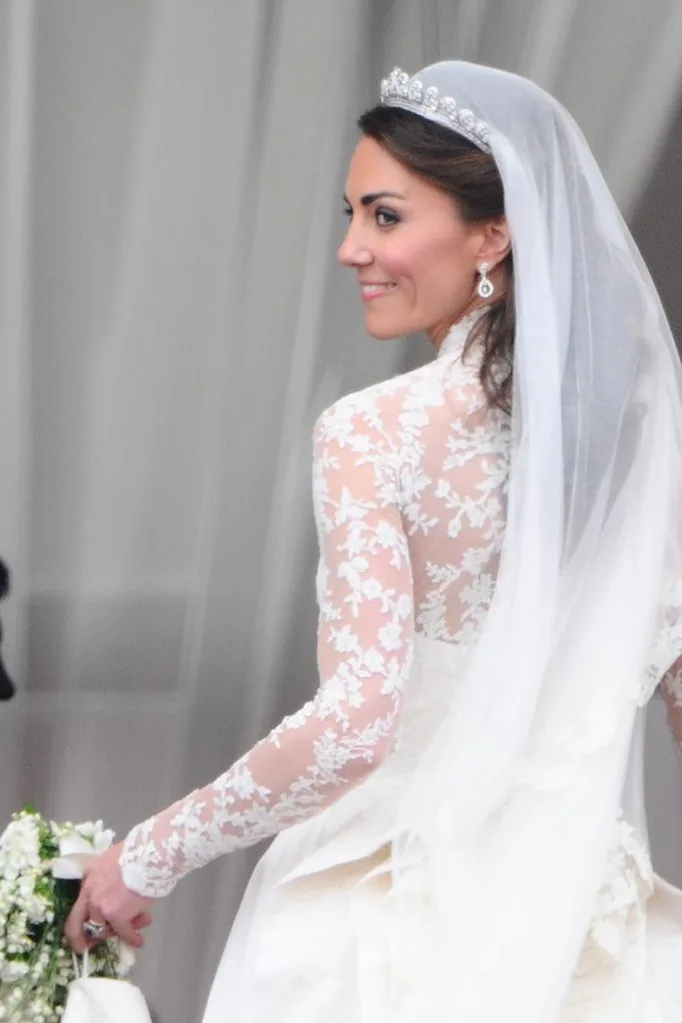
The main body of the dress was made in ivory and white satin gazar, using fabrics which had been specially sourced by Sarah Burton in the United Kingdom. However, the French Chantilly lace was apparently the only fabric not sourced or supplied by a British company.
The Florals Stitched Into Her Lace Represented The British Isles
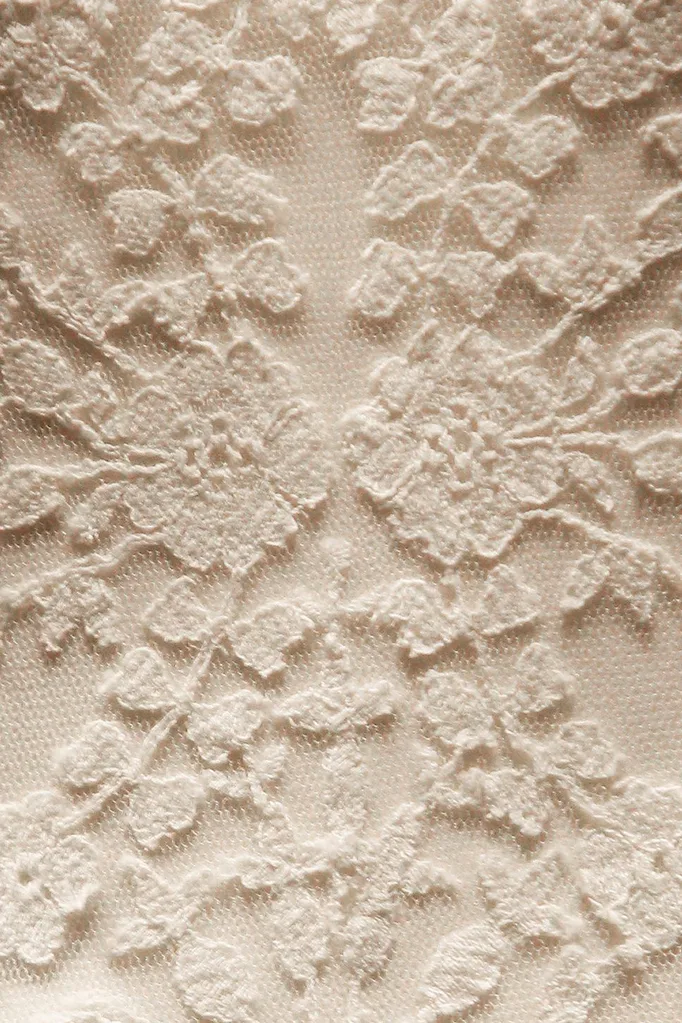
To create the ornate appliqué that covered the bodice of the dress, the Royal School of Needlework cut out floral patterns from long lengths of lace and then stitched them onto silk tulle. The florals incorporated roses, thistles, and shamrocks, which traditionally represent England, Scotland, and Ireland, respectively.
Middleton’s Earrings Were From Her Father And The Acorn Represented Their Family Crest
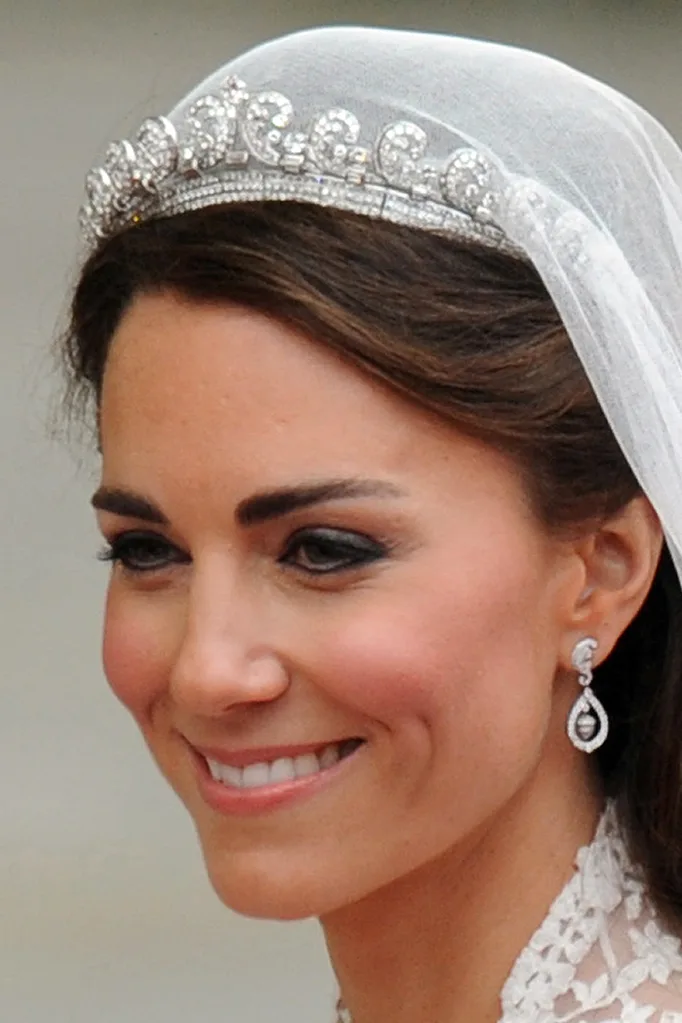
Middleton’s Robinson Pelham earrings took inspiration from the Middleton family crest, that echoed the acorn and oak leaf motifs. Her mother Carole, and father Michael, gave the diamond set to their daughter as a wedding present.
Multiple Famous Luxury Designers Wanted To Make Middleton’s Gown
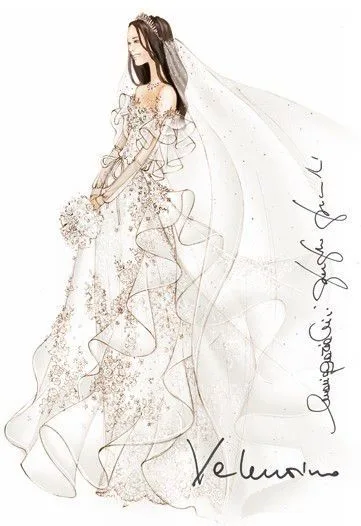
Some of fashion’s biggest and best designers were lining up to play a part in the Duchess’ gown, even submitting sketches. According to WWD, Karl Lagerfeld suggested a take on “the Victorian wedding dress”, Badgley Mischka designed a sparkly off-the-shoulder silhouette, Gucci offered a boat neck style, and Valentino designed a dreamy, “blossoming” gown.
Sarah Burton Had Actually Already Designed A Royal Wedding Gown Before Hers
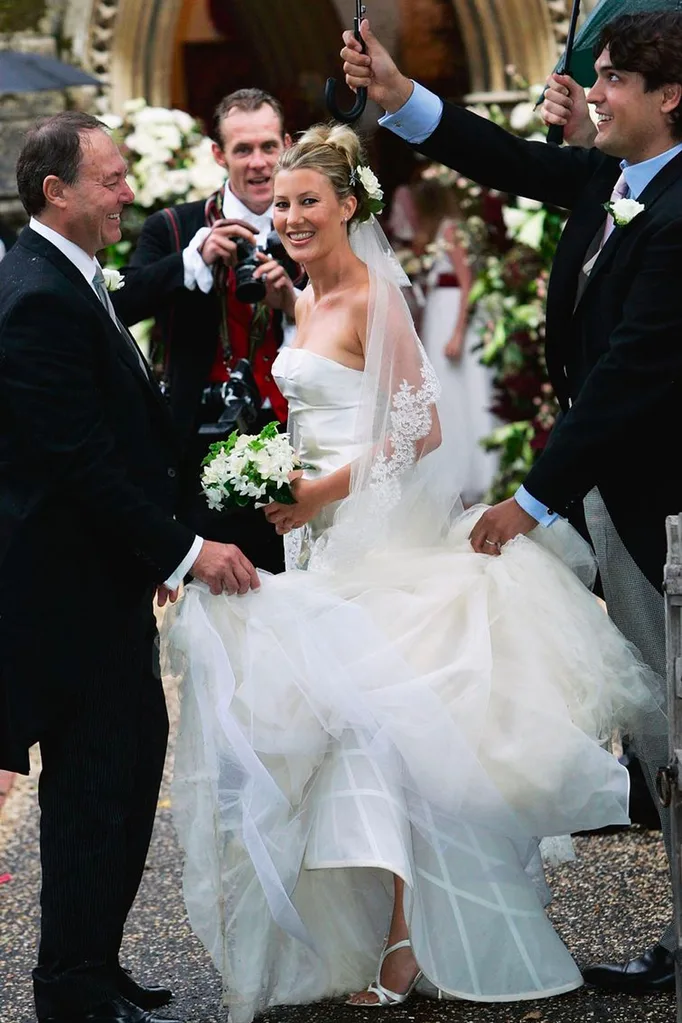
After the endless speculation over which designer would be creating Middleton’s gown, The Sunday Times revealed that Alexander McQueen designer Sarah Burton had “won the most coveted commission, according to fashion industry sources”. However, she had already designed the wedding dress of Sara Buys, the wide of Duchess Camilla’s son Tom Parker Bowles.
Embroiderers Who Worked On The Dress Had To Wash Their Hands Every 30 Minutes
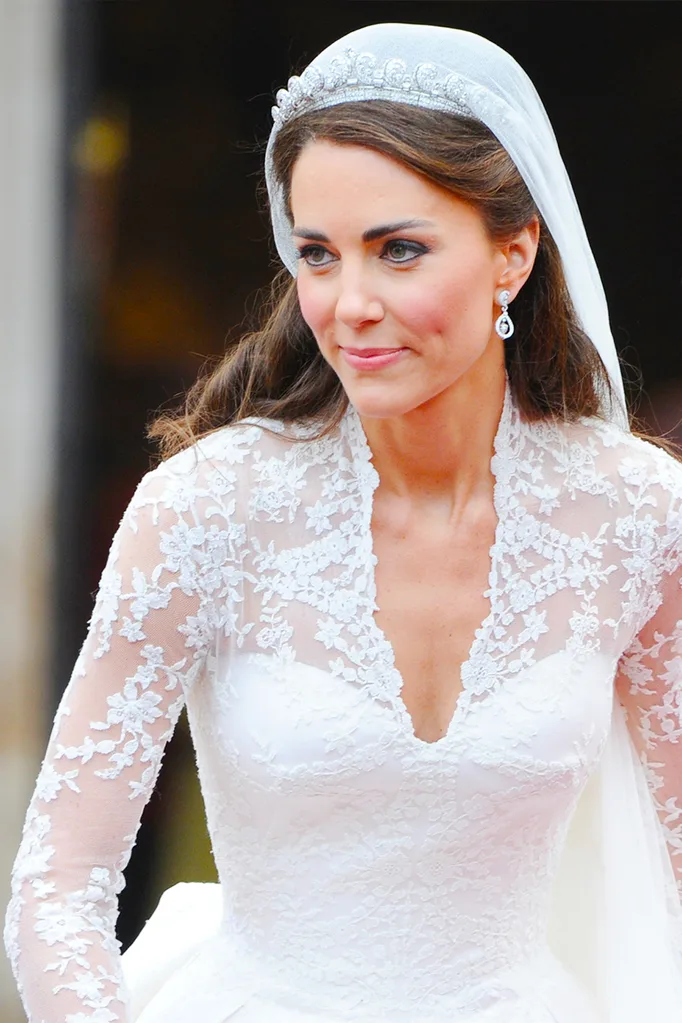
According to the Huffington Post, the royal family released a lengthy statement about Kate Middleton’s dress after the wedding, that included facts on the production of the dress. One of which being that the Royal School of Needlework, who attached the lace appliqué, were required to wash their hand every 30 minutes to ensure the lace remained pristine.
The Train Of Her Wedding Gown Measured At 9 Foot Long
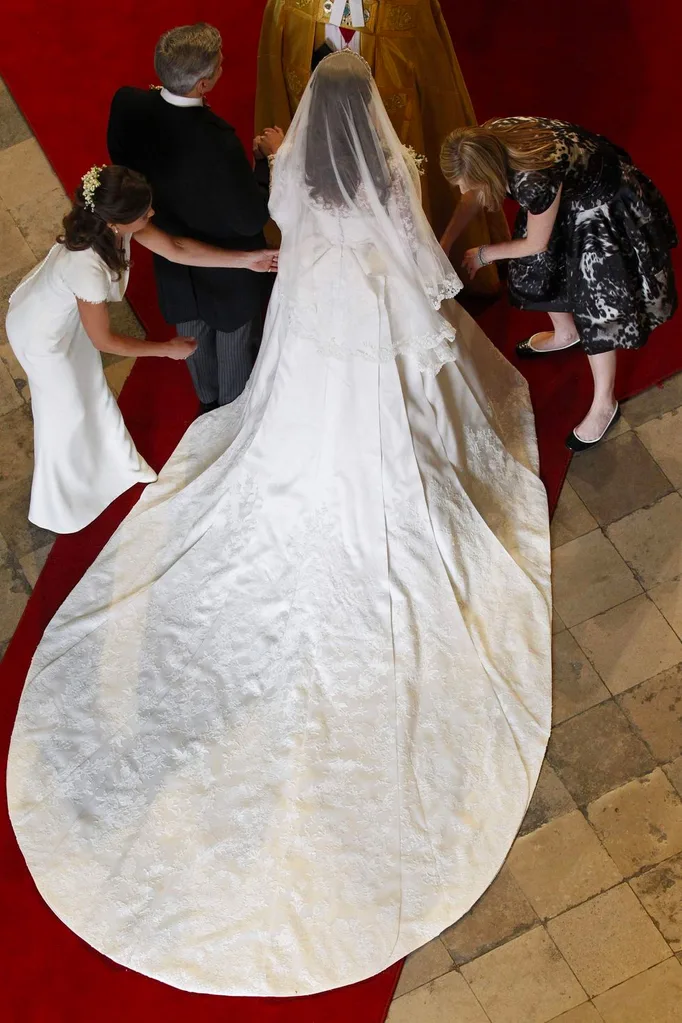
While the Duchess of Cambridge’s nine foot-long train made for a dramatic entrance into Westminster Abbey, it was actually short compared to Princess Diana’s train, which measured a whopping 25 feet in length. Kate Middleton’s dress also featured 58 gazar and organza covered buttons on the back, which were fastened by rouleau loops.
